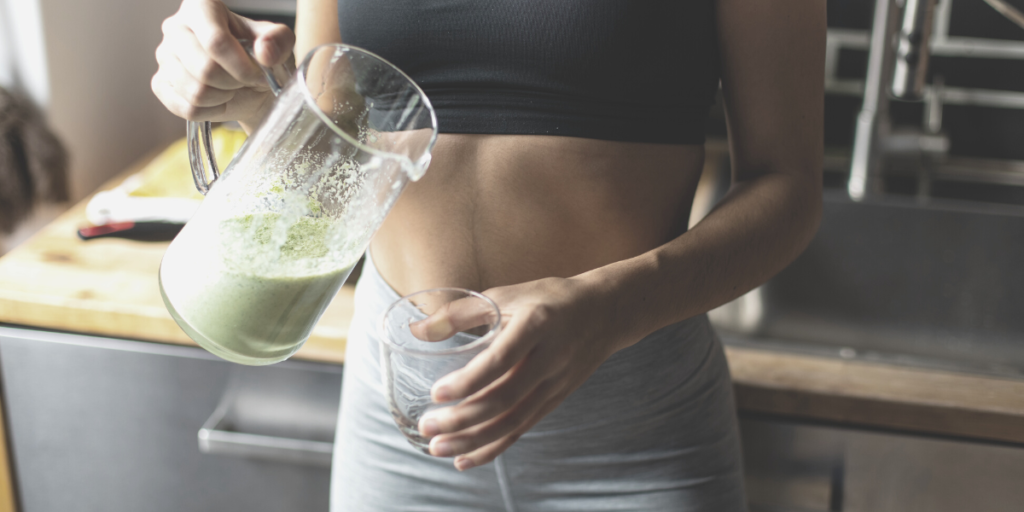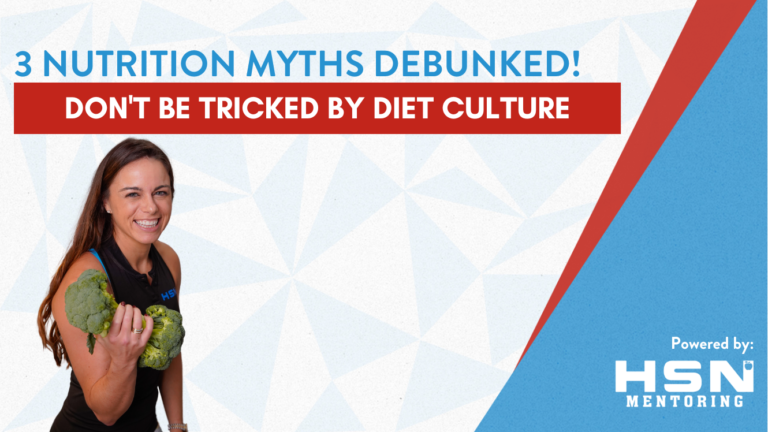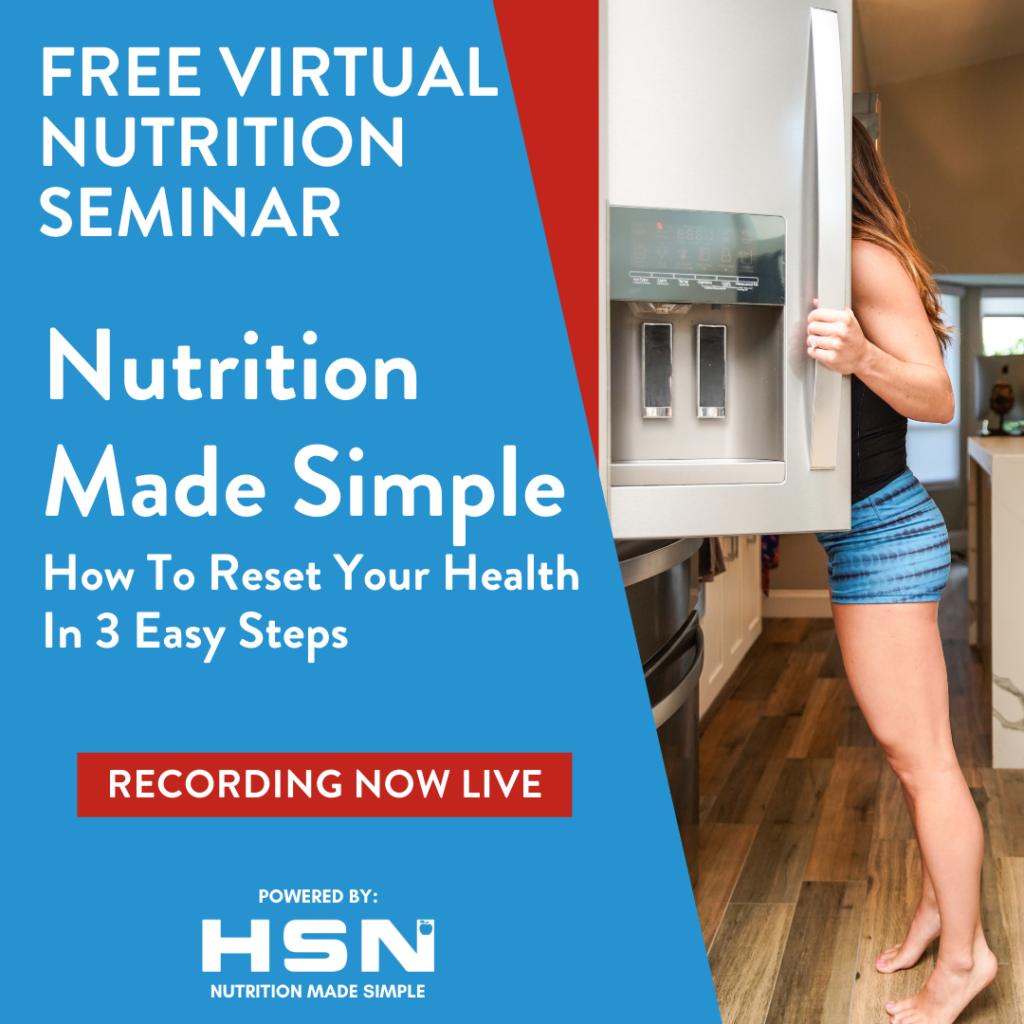Nutrition myths can be incredibly influential when it comes to people’s dietary choices. Social media plays a HUGE role when it comes to nutrition. “Influencers” often share nutrition tips and advice about nutrition which may not always be based on accurate information. This can lead consumers to make decisions about their diet based on misleading or incomplete data. Often times acting on this information reduces the quality of life, and could also end up being potentially harmful to overall health.
It is important for individuals to do research into any nutrition advice they come across on social media or online in order to confirm its accuracy before taking any action. Making decisions based on current scientific research coming from a qualified source will ensure a healthy approach to nutrition.
In this article we will cover three of the top trending myths about nutrition online and in social media.

What Is A Nutrition Myth
A nutrition myth is an inaccurate belief about food, health, and diet related to the consumption of certain items or combinations of items. Nutrition myths have been around for centuries and have been perpetuated by inaccurate information or outright lies.
The internet and social media have changed the amount of content being consumed related to nutrition by making it easier for people to find and access all sorts of information. Social media has given influencers and so-called experts a platform to spread their messages and reach a wide audience.
These Influencers and so-called experts often put forth false information on social media or online in order to gain followers, attention, or monetary gain. They may have an agenda that supports the promotion of certain foods or diets, or they may be misinformed themselves and pass false information along to their followers. It is important for people to do their own research and make sure any nutrition advice they find online is accurate before taking any action.
Three Myths About Nutrition Trending Today
We are going to dive right into three of the top myths trending today. Additionally we will provide advice on why they are a “myth” and what you should do instead to eat healthier.

Myth #1 - Carbs Are Bad And Cause Weight Gain
The idea of demonizing carbohydrates and cutting carbs from one’s diet originated from popular diets such as the Atkins and Keto diet. These diets promote the notion that all carbohydrates, or “carbs,” should be eliminated from our diets in order to lose body weight. This has caused many people to view carbohydrates as unhealthy and “fattening,” leading them to demonize them as a health hazard.
Sadly, people telling consumers that carbohydrates are bad often times benefit financially from their endeavor. The ketogenic diet market is predicted to increase in value to over $15 billion by the year 2027. “Experts” are making money from promoting this diet through paid ads, products they are paid commission on to sell, courses, ebooks and affiliate sales.
What consumers fail to realize is that no “diet” is a one size fits all approach. And although these types of diets may work for certain individuals with unique conditions, for the general public, they are not sustainable and can have side effects. Studies have shown the keto diet used short term for certain conditions can provide promising results. However long term, for people with no health conditions, should be avoided due to its side effects, and lack of sustainability. Some of the side effects included can be dehydration, electrolyte disturbances, and hypoglycemia.
The ketogenic diet was used beginning in 1920 as a way to treat epilepsy. As drug modernization developed, it overtook the use of the diet to control the disease. Because of they way the body responded to eating this way, people began to capitalize the use of the ketogenic diet as a way to initiate weight loss rather than its primary goal of treating epilepsy.

The Truth About Carbs
Carbohydrates are nutrient dense foods and our bodies main source of fuel. When we eat carbohydrates they get broken down into a simple sugar called monosaccharide. Monosaccharide is broken down into its simplest form and absorbed into the bloodstream. A rise of sugar into our bloodstream stimulates our pancreas to secret a hormone called insulin. Insulin is needed in order to initiate the transfer of the sugar from the bloodstream to our cells so that our bodies can use it as a source of energy.
Once our cells have taken in enough energy, our liver takes control to turn that excess sugar into glycogen. Glycogen is mainly stored in our muscles and liver and is used as an energy source later. There is only so much storage room in our body, so anything in excess will be converted into fat for long-term storage.
I thought carbs don’t make me fat?!
The fat stored from carbohydrates is a completely normal process. We don’t eat constantly throughout the day, so we need these storages so that our bodies can convert the fat into glucose for energy during the day. The problem lies when we eat so much that the storages are higher than what we use. When fat stored as energy is never used up – it remains fat on the body which causes weight gain.
What is also important to remember is that any macronutrient eaten in excess, even protein, will be stored as fat. And, if not not used as energy will remain on the body as fat causing excess weight gain.
This is why in order to promote weight loss in the form of body fat, you must be in a calorie deficit. It doesn’t matter what macronutrient the energy is coming from, if you have too much, it will be stored as fat.
Debunking Myth #1: Stop Avoiding Carbs Unless Directed To Do So By A Doctor Or R.D.
Carbs are our bodies main source of fuel
Carbs have fiber which help us remove excess cholesterol from our bodies, aids in digestion and help us “poop”
Carbs aid in the oxidization of fat
Calories from carbohydrates should be around 30-40% of our daily intake (individual needs vary – seek the help of a professional for your individual needs)
At Healthy Steps Nutrition, we are HUGE fans of the plate method to help with creating meals balanced with carbohydrates, proteins and fats.

Rather than restrict carbs altogether, focus on consuming healthy carbs that are loaded with fiber and essential nutrients. Fruits and vegetables, whole wheat bread, and brown rice are great carb examples. Some other examples of these types of carbohydrates are in the infographic below.

Carbohydrates are classified into three categories; low glycemic, moderate glycemic and high glycemic. The glycemic index is used as a way to determine how fast our blood sugar will rise when we eat certain food. In turn our body will secrete insulin in the amounts needed to bring our blood sugar back down to a normal range after eating.
Our food choices should prioritize lower glycemic index foods when we can, however, incorporating more moderate and high glycemic carbohydrates is best earlier in the day and before/after workouts when our cells are more ready for the sugar we get from the carbohydrates.
Myth #2 - Training Fasted Is Better
In 2020 J.Lo and A.Rod posted to their Instagram feed that they woke up and did a little “fasted cardio” to burn fat. The whole world jumped on the bandwagon after reading that post! This myth is circulating all around the fitness world causing many studies to be done in hopes to determine the real truth.
The notion suggests that if workouts are done in a fasted state the body will burn more fat which results in the person losing weight. People assume that in a fasted state (no food for 12 hours) the bodies glycogen stores have been depleted. Working out requires an energy source and because there is no energy being stored in your body as glycogen due to fasting, the only place for our body to pull energy from is fat storage.
There is some truth in the fact that there is more fat being oxidized in a fasted state because of the lack of glycogen availability. That being said, fat loss overall was not found to be higher in individuals that participated in fasted training. The reason behind this is because in order to lose body fat, one must be in a calorie deficit. Just because fat was used as energy in a workout, has nothing do with if the person is in a calorie deficit overall.
Debunking The Myth #2: Train Fed
So what should you do? Train fasted or not fasted?
Our advice is to train fed.
If the reason behind training fasted is to lose more body fat than training fed, we just debunked this myth. Fasted training will lead to hunger and reduced performance as the body’s main source of energy is the carbohydrates stored in the muscles as glycogen. If there isn’t any fuel, performance suffers. In fact you may end up burning fewer calories if training fasted because the energy to “push” isn’t there. This study on fasted exercise, energy and hunger confirms this notion. Additionally this study found there was no difference in total fat loss between the fasted and the non fasted exercise groups.

Are you that person that trains fasted because your stomach gets upset if there is food in it while working out?
Our suggestion is to begin to experiment with the timing and types of foods eaten before exercise.
Normally we would call for exercisers to eat some carbs and protein around 60 minutes before exercise. Keeping in mind that stomach sensitivity is an issue, trying different types of liquid only carbs & proteins may be a great place to start. Protein water by Ascent Protein taken with some applesauce could work. We’ve also found great success with Fuel For Fire pouches which have the consistency of applesauce but contain both carbs and protein.
Myth #3 - A Detox Diet And Detox Products Rid The Body Of Toxins
Most people have seen claims of different teas, smoothies, cleanses or pills that will help detox the body. A red flag goes up for me when I read these things, however just like the keto industry, the global detox product market is worth $51.75 billion dollars. It is expected to grow 4.6% over the next several years.
This means that influencers and so called experts are pushing products on consumers that will supposedly rid their body of toxins. First they set the scene that our bodies are constantly exposed to toxins. Next they convince us in order to rid ourselves of these harmful chemicals the only alternative we have is to “detox” and flush the toxins out. Detoxing involves buying their product, which of course makes them, and the company they work for money.
What Are Some Examples of Detox Products?
When you search for detox products on Amazon, over 20,000 products show up! They include items such as
45 Detox Tea Bags for $151.95
Detox spa mud (I have no idea what this is) – $289
Colon detox: A 14 day colon cleanse $70.00
Daily Gut Detox costs $129.95 for one small bottle!
Slimming detox tea pack for $94.95
Digestic Colon Cleanse: 720 capsules for $359!
This is just a small list! The problem with these products is that they don’t work. But consumers are so “hypnotized” by the marketing that they don’t think twice about purchasing something that will supposedly save them, and help them lose weight.
So many studies have shown that the body weight you lose from water loss when doing a detox is not near worth the dangerous side effects that can be associated with some of these detox methods. Web MD says the only detox diet worth doing is the one that focuses on eliminating overly processed foods. Anything else could be considered flat out dangerous.
Colon cleansing can be harmful for people with a history of heart disease, digestive and kidney diseases. Some juices used in these “cleanses” can be unpasteurized making people sick. Additionally drinking large amounts of detox teas and water without eating much food can cause electrolyte imbalances which is very dangerous.

Debunking The Myth #3: Take Care Of Your Kidneys And Liver
If you feel like there is something wrong with you due to toxins in your body, consult your doctor before you turn to the internet for detox advice and products. If you are simply concerned about toxin exposure and want to reduce your overall risk, a great way to start is with your dietary intake.
Focusing on consuming a healthy diet consisting of whole un – processed foods as much as possible reduces the risk of being exposed many chemicals. Additionally washing your fruits and veggies thoroughly and buying organic products when possible can also help. Remember that the organic industry is not well regulated and the only difference between organic foods and regular foods is the chemicals used on them during the growing process. The nutritional value of organic produce and vs non organic foods is no different.
There are toxins in the air, water and all around us. More than 400 environmental chemicals have been found by the CDC in humans urine, blood, breast milk and meconium. Minimizing exposure found in our air and environment is very difficult unless we live in a bubble.
Our liver and kidneys are amazing organs with the purpose of detoxifying the body. Let’s help them out by keeping our the foods we eat as clean as possible. A great way to keep your liver functioning efficiently is by limiting our saturated and trans fats intake. Reducing the amount of added sugar and alcohol we consume is another. Additionally drinking 60-80oz of water per day will help keep our bodies well hydrated and our kidneys functioning optimally.
By doing just these two things you are being proactive in helping your body flush out toxins. In addition, by avoiding highly processed foods and saturated fat, you are also helping reduce your dietary cholesterol intake which helps deter cardiovascular disease.
Conclusion
If you have fallen into one of these myth or fad diet traps floating around the diet and nutrition industry, don’t feel bad. Get connected with a good R.D. or nutrition coach in your area to help you get back on track.
Just to recap…
Stop avoiding carbs unless directed to do so by a R.D. or doctor! Focus on the plate method and a balanced diet.
Train fed! Learn to fuel your body approximately 30-60min before you workout in order to boost performance
Take care of your liver and kidneys rather than participate in a detox diet.





